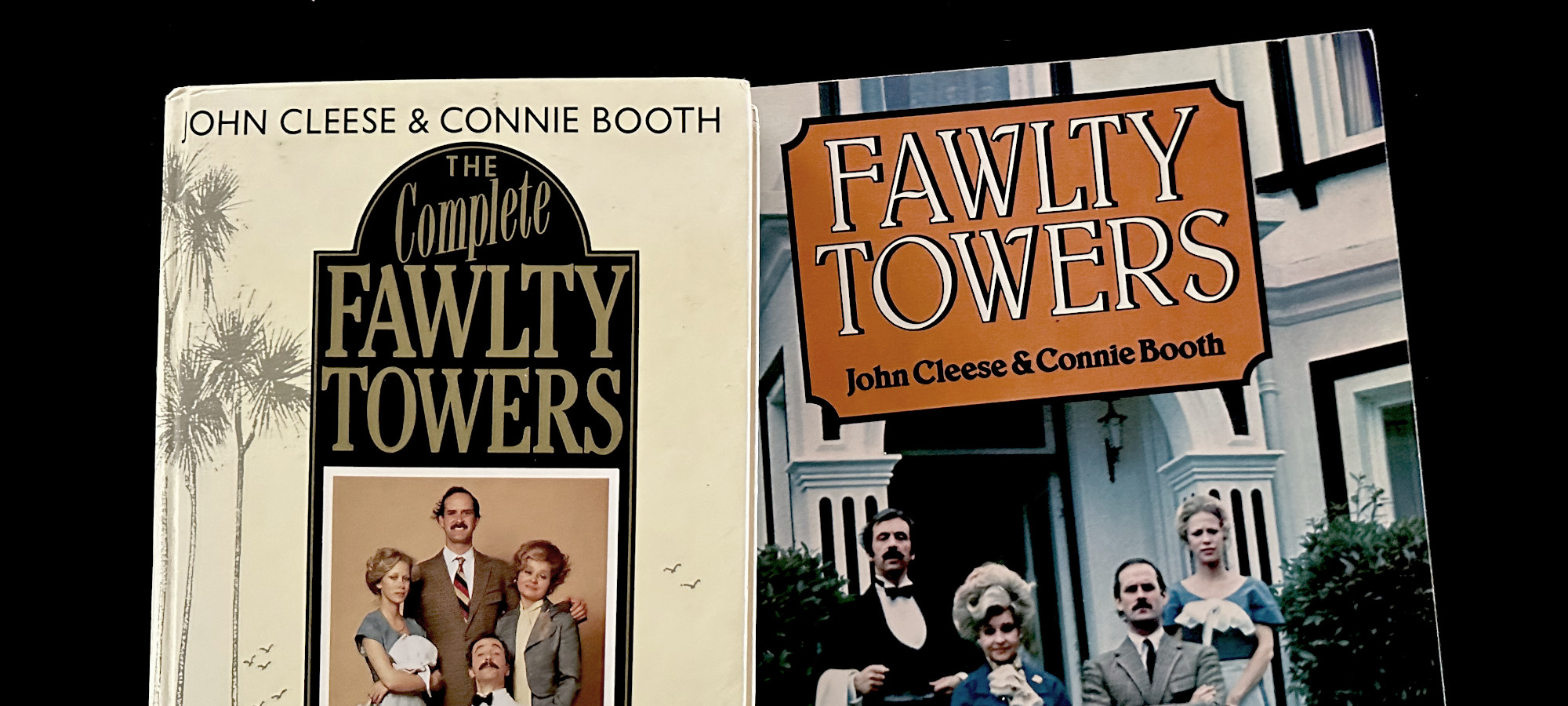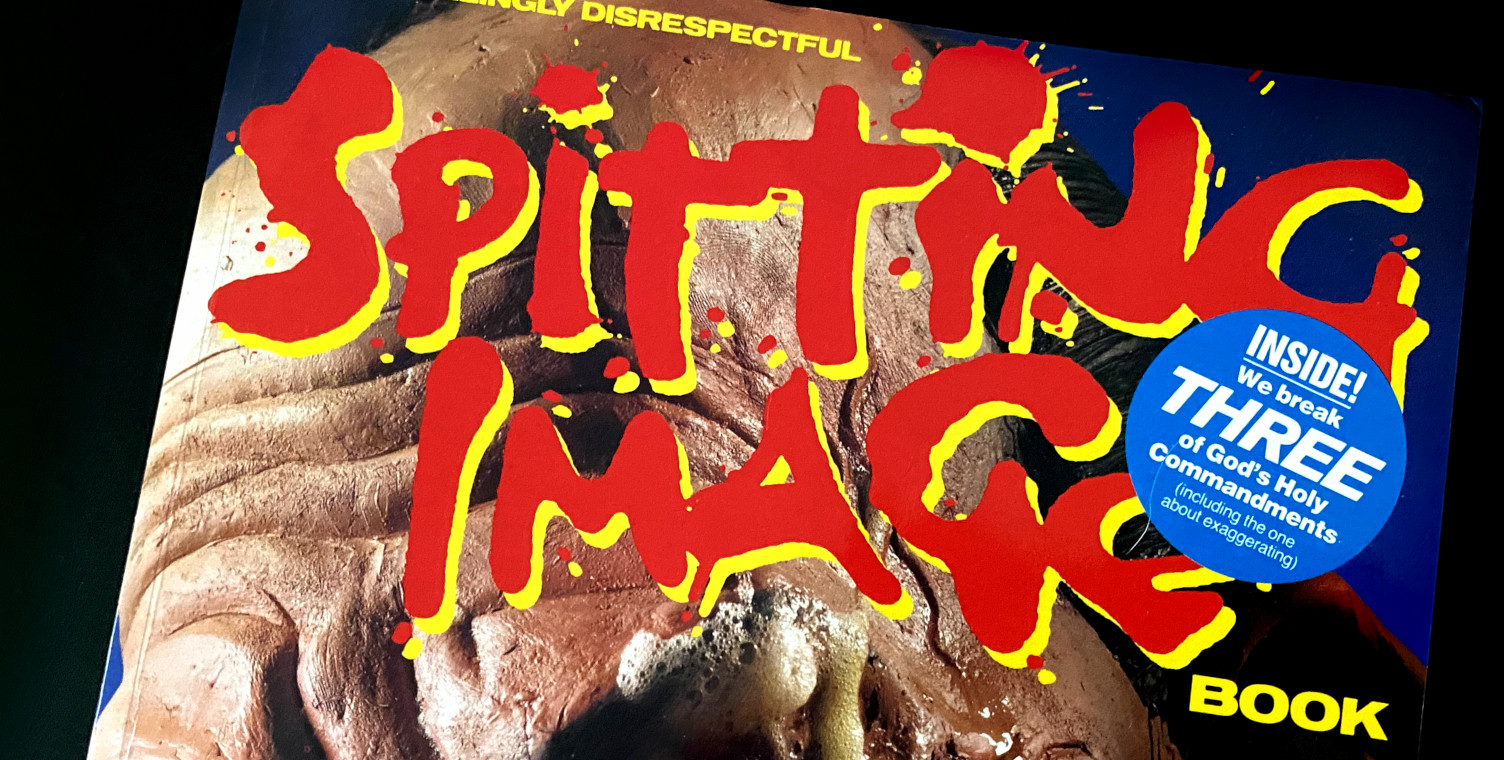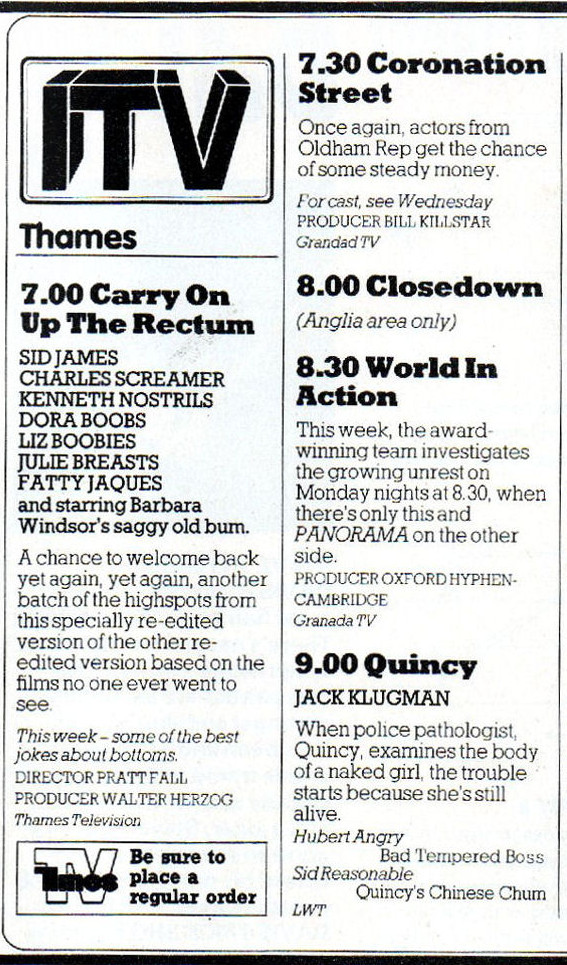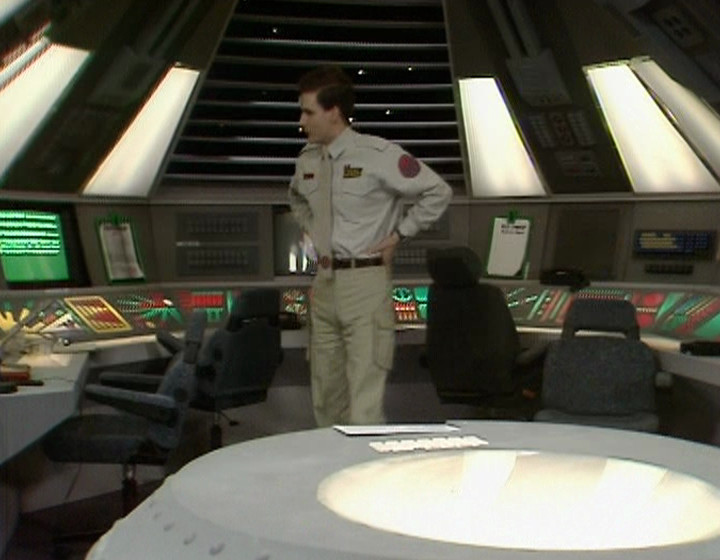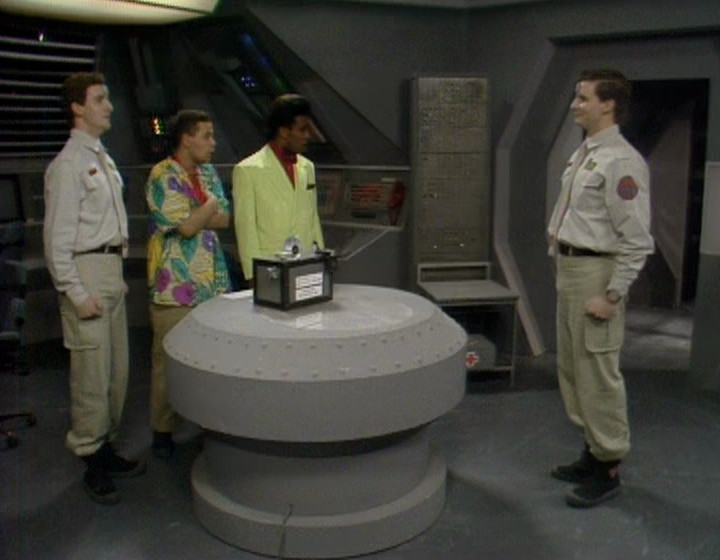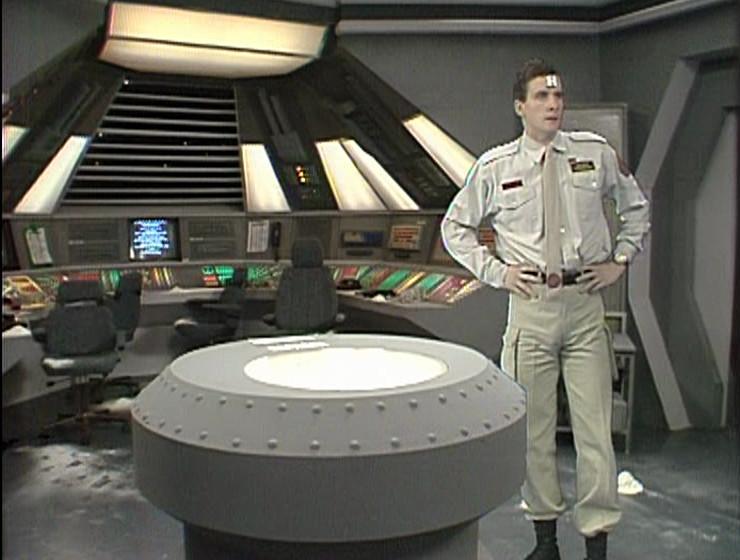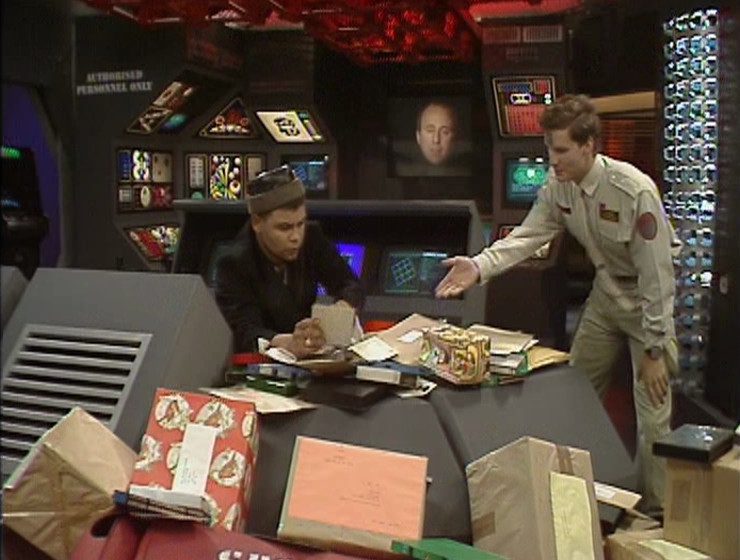It’s Tuesday 21st November 1989 at 9pm, and the Red Dwarf episode “Marooned” is broadcast on BBC2 for the first time.
What was I doing? I have no idea. It was presumably a school night. I don’t think I even knew what Red Dwarf was. My Dad always watched the Nine O’Clock News at this time anyway. I had no rights over the television by that point in the evening.
The moment passed, unnoticed. By me, anyway.
* * *
It’s Friday 15th April 1994 at 9pm, and the Red Dwarf episode “Marooned” is broadcast on BBC2 for the third time.
What was I doing? Something very different than in 1989. This was the famous1 repeat season, where BBC2 showed every single episode of the first six series of the show.2 A lot of fans got into the series through this set of repeats, and I was no different. I quickly became obsessed with the show.
I was, however, only 12, verging on 13. My Dad still had a monopoly on the television, and still always watched the Nine O’Clock News. Luckily, I had a plan. I’d manually set the video recorder going downstairs, then rush upstairs to my bedroom to watch the episode… on an old black and white telly. It wasn’t as good as watching it in the living room on the proper TV, but it would do. And I could always watch the show downstairs later using my video. Which I did.
Endlessly.
* * *
It’s Saturday 14th June 2014 at 9:55pm, and the Red Dwarf episode “Marooned” is broadcast on BBC Two for the sixth time.
Lots has happened since 1994. I’ve long since been subsumed into Dwarf fandom, or at least, one particular corner of it. At this point, I’d been writing for fansite Ganymede & Titan for over a decade. But I’m not sitting watching the episode at home. And not just because I now own the episode on DVD.
Three months earlier, I’d finally got the job of my dreams: working in BBC presentation, in charge of originating most of the BBC’s domestic channels. And I just happen to be in work that evening. But unfortunately, I’m not doing BBC Two right now. I’m on another channel.
Luckily, just like when I was 12, I have a plan.
At 9:50pm, I gently appear at the door of NC2, the BBC Two pres suite. There is a very experienced director in the chair. The most experienced, longest-serving director we have, in fact. I ask if he minds if I sit with him for the next five minutes. He’s fine with it. I pull up a chair.
I watch, as I Love 1988 ends. The director runs a couple of trails: Shopgirls, Tigers About the House. Then there’s the ident; a special one, for BBC Two’s 50th anniversary. Duncan Newmarch, the duty BBC Two announcer, opens his mic and speaks: most continuity announcements are still done live. The director counts down through the ident. At 0, the picture fades down, then up again, and “Marooned” is on air, for the next 28 minutes and 35 seconds.
And two decades apart, two different parts of my life join together, briefly. Watching the same episode of Red Dwarf… but from opposite sides of the TV screen. And my teenage love of the show, and my brand new adult job, were now properly linked. Forever.
Sometimes, I’m aware enough of what’s going on around me to make sure a piece of personal history actually happens, rather than letting it slip from my grasp. Just sometimes.
With thanks to Christopher Wickham for the endlessly useful Red Dwarf BBC Broadcasts Guide, and Pip Madeley for inexplicably but brilliantly having the above video to hand.
Read more about...
best of, red dwarf, tv memories

